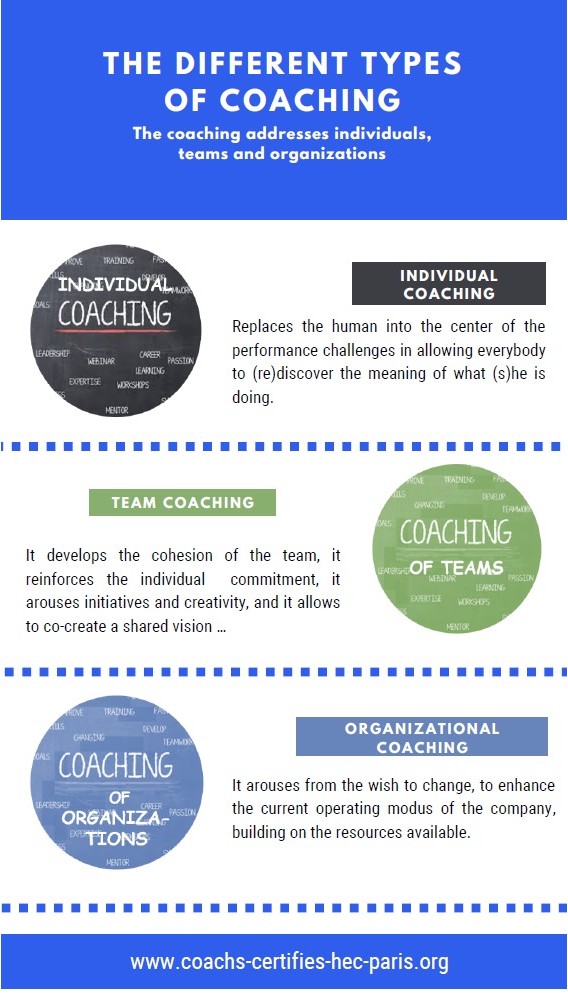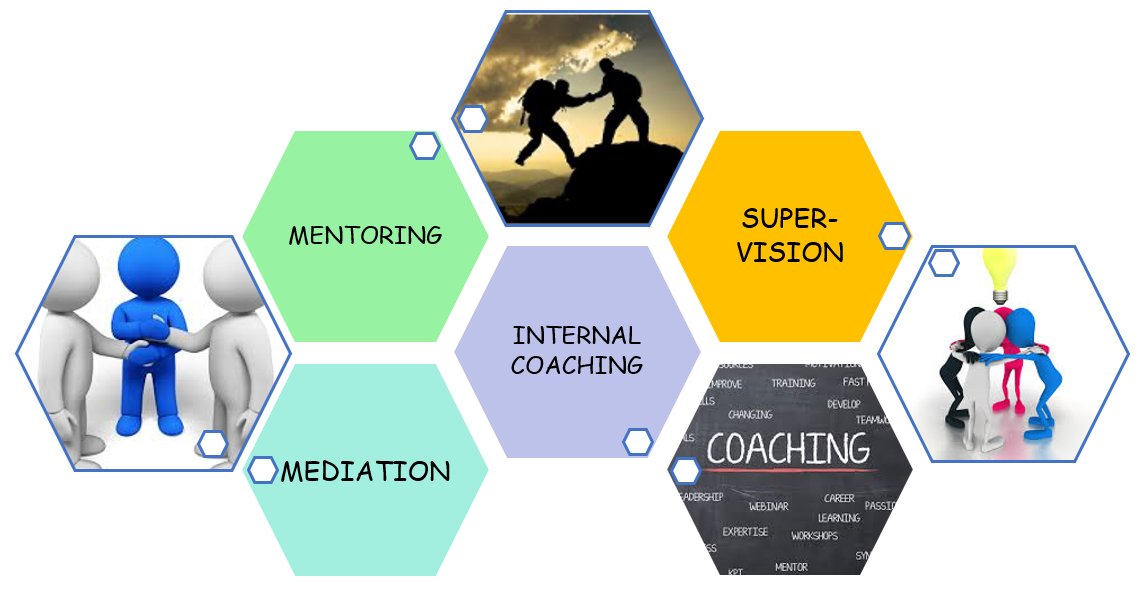The various types of accompaniment
The accompaniment serves the coachee as a whole, is aligned and undivided and develops the individual and collective potential as it addresses the whole being, as well in the professional as in the personal life, connecting with authenticity and self-alignment to people of other cultures and to the surrounding nature.

THE DIFFERENT TYPES OF COACHING
The coaching addresses individuals, teams and organizations
Individual Coaching
Replaces the human into the center of the performance challenges in allowing everybody to (re)discover the meaning of what (s)he is doing.
The customized accompanimentallows to deepne the questions on as well know-how-to-be as know-how-to-do.
It’s about the individual accompaniment of women and men in situations of change (new position, professional transition, reorientation …) or to work with them on their leadership, their self-confidence, their way of dealing with priorities…
Team Coaching: multiplies the efficiency of individual coaching
It develops the cohesion of the team, it reinforces the individual commitment, it arouses initiatives and creativity, and it allows to co-create a shared vision …
In more and more complexe organizations, the Face à des organisations de plus en plus complexes, leaders must respond to paradoxical injunctions between the growing demand for rentability and the need to preserve employees’ well-being.
Team coaching is aimed to free the expression of individual talents whilst conserving the highest cohesion in the collective mode.
Organizational Coaching: it’s part of a proactive approach for improvement
It arouses from the wish to change, to enhance the current operating modus of the company, building on the resources available.
There is not necessarely a crisis or a rupture, but the deployment of a strategic project, the impact of a new tool, a merger, …
Accompanying the implementation of new organisations in an environment in deep change whilst restoring and reinforcing the team cohesion is a major challenge for leaders today.
That’s the reason why so often organizational coaching is preceeded by executive coaching for the leader, followed by the coaching of the board of directors. This is mandatory as one cannot change an organization without the leaders. It’s the engagement and the contribution of all which will allow the transformtion to happen.

OTHER ACCOMPANIMENT ACTIVITIES
Mentoring
Is a personal development relationship between a « mentor » who proposes his/her expertise in order to boost the development of the « mentored ».
It is a relationship of help, sharing and learning. The « mentored » holds an active role in this relationship, the objective being to become autonomous in mobilizing his/her own resources and solutions.
Mediation
Is an alternative way for conflict solving.
It’s principle is based on the amiable resolution of conflicts through the intervention of a third person, the mediator. The mediator is a professional trained in mediation and relies on a specific referential of compentencies. (S)he has no power of decision about the conflict. His/her objective is to allow the « medies » to realize a project, to solve a conflctual situation or to ®establish a relationship.
Supervision
Allows the coach to step back and grants the efficiency of the process:
The supervisor is specifically trained for supervision. His/her role is to create a space of support, for learning and solution finding in order to accompany the coaches, (s)he supervises in their practice. Thus, the supervisor develops the competencies and abilities of the coach, offers a space of support to reflect on the experiences lived during the work with the clients. (S)he also encourages good quality of professional practice in line with norms and deontology.

Corporate Internal Coaching
A specific form of coaching practized by employees who coach others within the company they belong to. The coach is trained in coaching and respects the deontological code of coaching.
The coaching purpose is mostly to individually accompany the women and men in change situations within the company (new position, reorientation, change of profession, return from expatriation…) or to work on their leadership, their self-confidence, their management of priorities…




